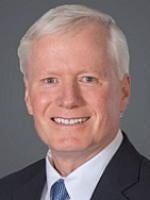Here is the latest information on the Massachusetts Paid Family and Medical Leave Act (PFML) requirements since our last report on April 17, 2019. As the date for issuing final regulations and starting employer contributions draws near, the Department of Family and Medical Leave (DFML) continues to publish updates. Almost every week, the DFML rolls out new guidance and updated deadlines. We encourage employers to sign up for the DFML’s alerts and newsletter to receive the most accurate and updated information. The draft DFML regulations remain open for public comment, and the DFML has announced that it is hosting two additional public hearings on May 23 and May 24, in Holyoke, Massachusetts and Boston, Massachusetts respectively.
Several significant updates have occurred since our last post:
-
The DFML has published template notices to provide to employees and self-employed individuals as required by the PFML and, significantly, has extended the deadline for employers to provide notice to employees.
-
The publication of the electronic approved plan application is now available through MassTaxConnect as of April 29, 2019. The deadline to file for a private plan exemption is also now subject to a limited extension.
-
The Commonwealth has requested guidance from the Internal Revenue Service (IRS) regarding the tax treatment of PFML contributions.
Notices to Employees and Self-Employed Individuals
For employers and covered business entities, the DFML has issued template notices to be provided to employees and self-employed individuals. Employers and covered business entities may use the template notice provided by the DFML or create their own and may also provide it in paper form or electronically. Note that the workplace poster must be posted by July 1, 2019, but the notices to employees or self-employed individuals are subject to a newly extended deadline of June 30, 2019.
Employees
For employees, employers and covered business entities must issue this notice to each employee within 30 days of their first day of employment, or it must be received by the employee on or before June 30, 2019, whichever is later. This notice must be written in the employee’s primary language. Note that several translations of the notice can be found on the DFML website. A written statement acknowledging receipt of the notice or a statement indicating the employee’s refusal to acknowledge the notice must be obtained. If an employer or covered business entity chooses to create its own notice for employees, the notice must contain the following:
-
An explanation of the availability of family and medical leave benefits
-
The employee’s contribution amount and obligations
-
The employer’s contribution amount and obligations
-
The employer’s name and mailing address
-
The employer identification number assigned by DFML (this will be the same as the employer’s Federal Employer Identification Number (FEIN))
-
Instructions on how to file a claim for family and medical leave benefits
-
The mailing address, email address, and telephone number of DFML
Self-Employed Individuals
Massachusetts 1099-MISC contractors who provide services to employers and covered business entities must receive the notice when the contract for services is entered into or on or before June 30, 2019, whichever is later, and it must be written in the contractor’s primary language. A written statement acknowledging receipt of the notice or a statement indicating the employee’s refusal to acknowledge the notice must be obtained. Employers and covered business entities may also choose to create their own notice for 1099-MISC contractors, but the notice must contain the following:
-
An explanation of the availability of family and medical leave benefits and the procedures for self-employed individuals to become covered individuals
-
The self-employed individual’s contribution amount and obligations if they were to become a covered individual
-
The employer’s contribution amount and obligations
-
The employer’s name, mailing address, and email address
-
The employer’s identification number assigned by DFML (FEIN)
-
Instructions on how to file a claim for family and medical leave benefits
-
The address and telephone number of DFML
Applications for Exemptions From Paid Family and Medical Leave for Private Plans
As of April 29, 2019, Massachusetts employers can apply for exemption from making family or medical leave contributions to the DFML. The DFML has now published additional guidance on applying for an exemption, including examples. To be eligible for an exemption, a plan must provide benefits that are greater than or equal to the benefits provided by the PFML. In addition to meeting benefit requirements, self-insured plans must also be covered by a required bond amount determined by the size of the employer’s workforce.
The DFML states that it will notify employers applying for an exemption by email within one to two business days from the date of application. A decision approving or denying the plan will require additional steps. Importantly, even if an employer is granted an exemption for an approved plan, employees will still be entitled to rights and protections, including:
-
The right to an appeal if their application for benefits is denied
-
The right to job protection during any leave taken
-
Protections against retaliation from taking leave or exercising other rights under the PFML law
Exemptions for private plans must be approved in the calendar quarter prior to the quarter in which they will take effect. For the initial quarter of PFML contributions, however, the deadline to file for an exemption has been extended from June 30, 2019 to September 20, 2019. The DFML states that this will give employers more time to consider offering a private plan. The DFML cautions, however, that this extension of the exemption application deadline only impacts the contribution requirements if the exemption request is approved. If the request for an exemption is denied, the requesting business will be responsible for remitting the full contribution amount from July 1, 2019 onward.
Guidance on Tax Implications Requested From the IRS
Employers have continued to seek guidance on the tax implications of PFML contributions. The contributions are governed by federal tax law, but the Commonwealth has requested guidance from the IRS on questions related to PFML contributions and benefits. Until this direction is issued, the DFML encourages employers to consult with their own tax advisors but states that the DFML anticipates the IRS will conclude that employee contributions should be withheld from after-tax wages.





 />i
/>i

